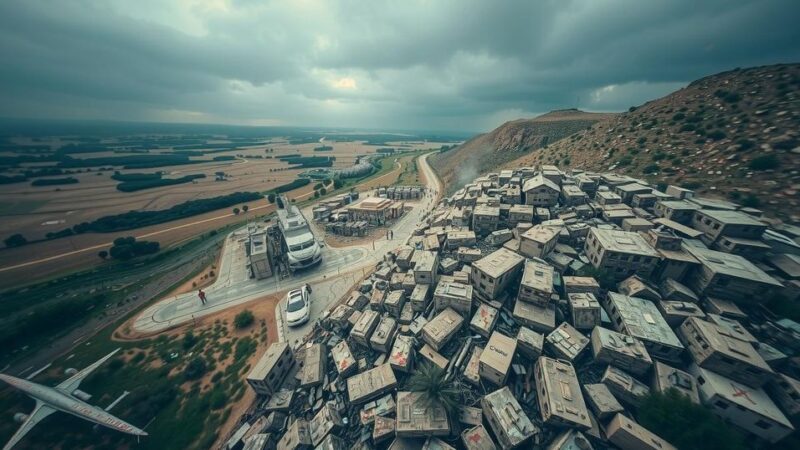Negotiators at the UN climate talks in Azerbaijan are racing against time to reach an agreement that secures over $1 trillion in funding for vulnerable nations impacted by climate change. As discussions intensify, wealthier countries have proposed lower financial commitments, leading to a complex dialogue on the necessity for equitable funding across developed and developing nations. G20 leaders emphasize their crucial role in shaping the outcomes of COP29 as urgency for climate action mounts.
As the United Nations climate talks progress in Azerbaijan, negotiators are under increasing pressure to establish an agreement that adequately addresses the funding requirements of vulnerable nations facing climate change challenges. With the conclusion of COP29 imminent, President Mukhtar Babayev urged negotiators to streamline their discussions and focus on substantive solutions. Developing nations are advocating for a monumental $1.3 trillion in financial support, significantly surpassing the amounts suggested by wealthier countries. While figures of $900 billion to $440 billion have been proposed, these remain insufficient for the anticipated needs. Negotiations are centered around three pivotal points: the total financial commitments, the balance between grants and loans, and the responsibilities of contributing countries. Australia’s climate minister, Chris Bowen, indicated that the lack of clarity around contributors complicates discussions on funding amounts. Concerns were raised by Diego Balanza, chair of a negotiating group, regarding the minority figure of $200 billion suggested by some, emphasizing that this falls short of what is required. South Africa and New Zealand’s climate ministers reaffirmed commitment to reducing fossil fuel reliance and advancing emission reduction strategies, including potential carbon credit systems through Article 6. Amidst these deliberations, Alden Meyer from E3G reflected on the challenging atmosphere of the talks, noting that progress feels stagnant. German climate envoy Jennifer Morgan called for presidency leadership to foster ambitious agreements. In parallel developments, UN Secretary-General Antonio Guterres highlighted the importance of G20 nations in determining the effectiveness of COP29, urging significant increases in public financial commitments. Brazilian President Luiz Inácio Lula da Silva called for developed nations to accelerate their emission targets, reiterating the collective responsibility of G20 countries in addressing climate impact. Overall, the urgency for decisive action and equitable financial agreements looms large as COP29 seeks to reconcile the priorities of developing nations with the commitments made by developed countries.
The ongoing discussions at the UN climate talks in Azerbaijan, known as COP29, are crucial in addressing the financial implications of climate change for vulnerable nations. The negotiations aim to secure pledges that surpass the offers on the table from developed countries, which have consistently fallen short of the projected financial needs. The climate talks focus on key areas encompassing the scale and type of financial support, the roles of different nations in contributing to climate funding, and establishing a robust framework for the transition from fossil fuels to cleaner energy solutions.
The climate negotiations at COP29 are at a critical juncture as the need for substantial financial commitments from wealthier countries becomes increasingly urgent. With developing nations expressing the need for $1.3 trillion in support, the discussions around contributions and funding mechanisms are vital. The sentiments expressed by various leaders and experts underline the necessity for clear commitments and actionable leadership to ensure the success of these talks and address the pressing challenges of climate change effectively.
Original Source: abcnews.go.com




